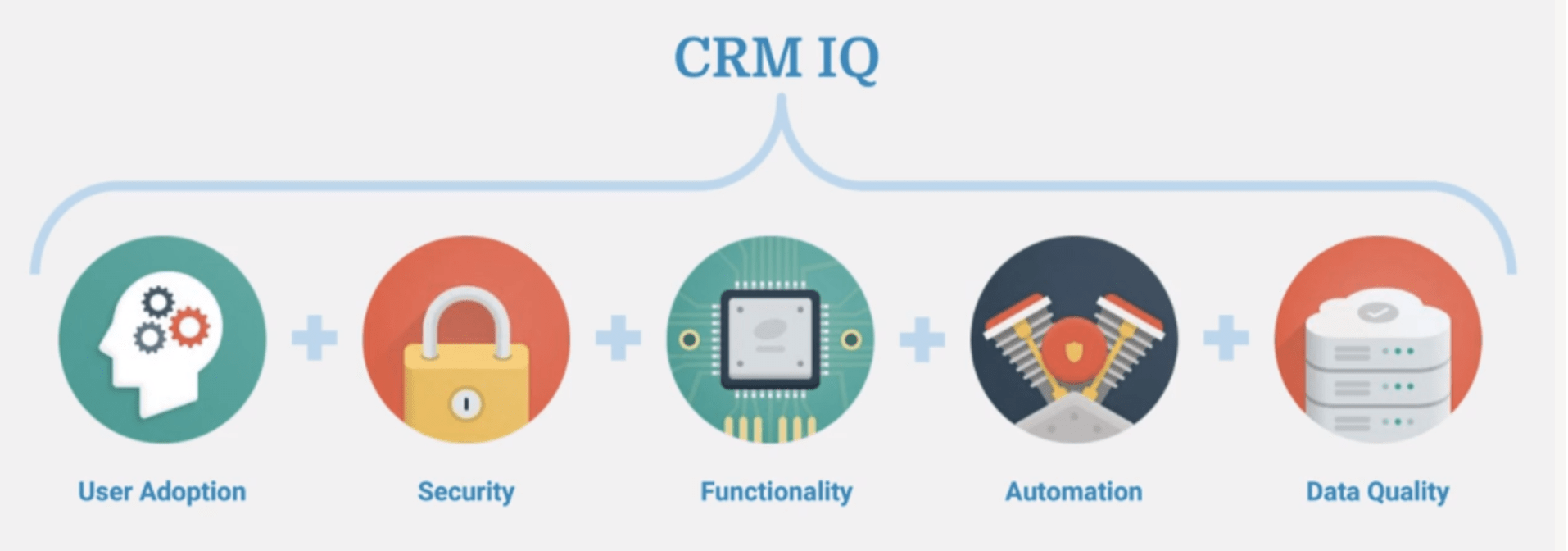
When it comes to modern CRM technology, there is good and bad news. The good news is that CRM is now the largest software market. The bad news is that CRM is now the largest software market. I know. Mind-blowing, right?
Let me break it down for you. Today, we have dozens of CRMs flooding the market, and while that means that users have more choices, it also means that there is a lot of noise and confusion. Which CRM has the best price? Which one is more secure? How user-friendly are they? Which one will offer the best ROI?
We base our findings on the five core components that we consider every CRM should have: user adoption, security, functionality, automation, and data quality.
These five components are what every expert and consultant in the market will tell you you need to be on the lookout for, but what exactly do they mean? Let’s dive into these five components that affect how much value people are getting out of their CRM, and why these components are so essential.

There are always ways to improve user adoption and to increase ROI. When it comes to your CRM, user adoption is one of the biggest challenges. The lack of adequate user adoption results in the failure of most CRM implementations (more than 50% failure, according to Forrester). Visual representation of data is critical to get your employees to embrace your CRM and improve their efficiency. An improved visual interface, combined with the quality data you migrate into your CRM, will definitely improve user adoption and productivity.
Here are a few tips on how you could improve user adoption:
As data privacy (GDPR) and cybersecurity measures are increasing, we found security has become an important factor for return on investment (ROI). Companies need to have appropriate security practices in order to be able to make sure that their CRM can be used correctly. Often, companies are sensitive about adopting CRM due to poor security practices. They’re nervous about storing sensitive data on a system that could expose them to risks. Here are some good points for improved security:
What can your CRM system actually do? Can you add additional functionality? Can you automate a process or add a feature that you need and that would give you additional value? All of these are valuable questions that, once answered, will help define your CRM’s value to your organization. Improve functionality by:
With the right automation, CRM can save businesses a significant amount of time and money. CRM has evolved from being just big databases to a crucial business automation tool. Make sure that your CRM works perfectly together with your marketing automation tool to achieve the automation of business processes that your organization needs so badly.
Improve automation:
A component that truly elevates a CRM from a big chunky database to a customer intelligence platform is the ability to generate actionable insights. Quality data is paramount for any organization. If you don’t ingest good data into your system, you won’t have good reports and analytics coming out. Be sure your CRM can apply artificial intelligence to recognize patterns in customer behavior and recommend actions for the best-predicted outcome.
Here is how you can improve data quality:
These 5 core components working together can create the perfect CRM system.
There are many other factors to take into consideration when measuring your CRM’s value and capabilities. But if these five core components are in place successfully, your CRM should be working at its full capacity.
We have a free eBook that explains in much more detail all that you should be on the lookout for if you’re shopping for a CRM in 2021. Check it out here!
Have any specific questions or would you like to chat with an expert? Contact us anytime via the form below!